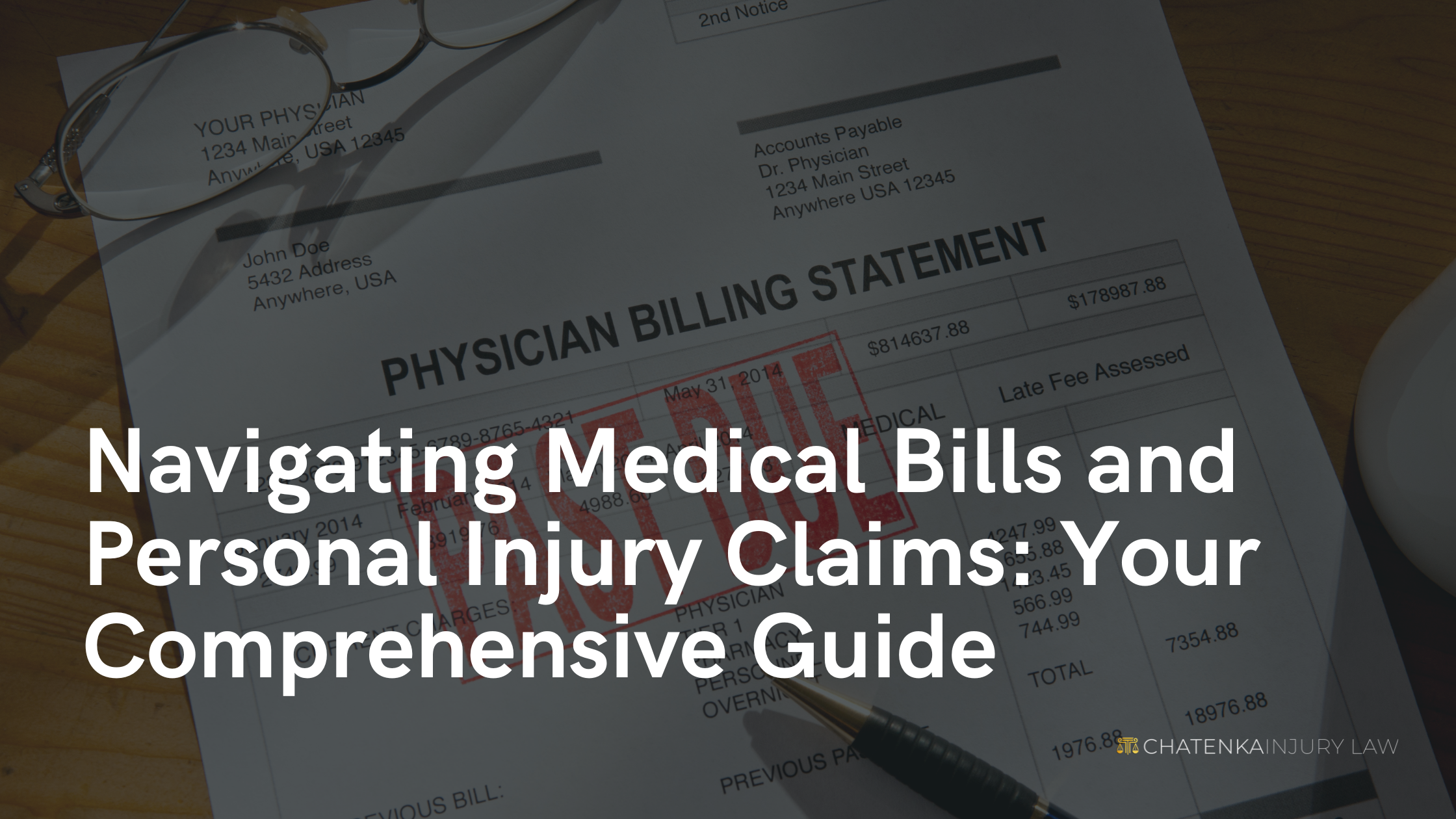Navigating Medical Bills and Personal Injury Claims: Your Comprehensive Guide
Suffering an injury due to someone else's negligence can be a daunting experience, both physically and financially. Aside from dealing with the pain and recovery, you may find yourself buried under a pile of medical bills. Fortunately, understanding how medical bills intersect with personal injury claims can provide clarity and relief during such challenging times.
Understanding Medical Bills:
Before delving into the intricacies of personal injury claims, it's essential to comprehend medical bills themselves. Medical bills typically include charges for various services, such as doctor consultations, diagnostic tests, surgeries, medications, and rehabilitation therapies. These bills can quickly accumulate, especially for severe injuries requiring extensive treatment.
Insurance Coverage:
In many cases, individuals have health insurance coverage that helps offset the cost of medical treatment. However, the extent of coverage varies depending on the insurance policy's terms and the nature of the injury. It's crucial to review your insurance policy to understand what is covered and what out-of-pocket expenses you may incur.
Liability and Personal Injury Claims:
When someone else's negligence or wrongful actions cause your injury, you may be entitled to compensation through a personal injury claim. These claims typically involve proving that the defendant breached their duty of care, directly causing your injuries and resulting damages. Medical bills are a significant component of the damages sought in personal injury claims, along with lost wages, pain and suffering, and other related expenses.
Documenting Medical Expenses:
Thorough documentation of medical expenses is vital for building a strong personal injury claim. Keep detailed records of all medical bills, including invoices, receipts, and explanations of benefits from your insurance company. Additionally, document any out-of-pocket expenses related to your injury, such as transportation costs for medical appointments or home modifications for accessibility.
Negotiating Medical Liens:
In some cases, medical providers may place a lien on your personal injury settlement to ensure they receive payment for services rendered. Negotiating these medical liens can be complex but is essential for maximizing your compensation. An experienced personal injury attorney can help negotiate with healthcare providers to reduce the amount of the lien, allowing you to keep more of your settlement.
Reimbursement and Subrogation:
If your health insurance provider covered your medical expenses, they may have a right to seek reimbursement from your personal injury settlement through a process known as subrogation. However, the amount they can recover may be subject to negotiation, particularly if your settlement does not fully compensate you for your damages. Working with a skilled attorney can help protect your interests in these reimbursement negotiations.
Navigating medical bills and personal injury claims can be overwhelming, but understanding the process is crucial for securing the compensation you deserve. By comprehensively documenting your medical expenses, negotiating medical liens, and advocating for your rights, you can alleviate the financial burden of injury and focus on your recovery. Remember, seeking guidance from a knowledgeable personal injury attorney can significantly enhance your chances of a favorable outcome.


